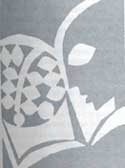Treasure tapping
 THE Environmental Resources Research Centre (ERRC) in Thiruvananthapuram, Kerala, seeks to promote research and studies in identification of natural resources, and their use by developing required technologies.
THE Environmental Resources Research Centre (ERRC) in Thiruvananthapuram, Kerala, seeks to promote research and studies in identification of natural resources, and their use by developing required technologies.
The ERRC aims at spearheading the environment movement through planning r&d in 6 major research areas including wetlands, wastelands and the Western Ghats eco-system. Its Faculty of Environmental Policy Studies and Communication examines environment laws, and surveys popular perceptions on developmental programmes. The centre formulates environmental education and communications programmes for different target groups.
The ERRC's activities are funded by organisations like the Council of Scientific and Industrial Research and the Oil and Natural Gas Commission. Its Science and Technology mission is specifically aimed to enhance the living standards of economically backward areas. The outfit has identified Kumarakom panchayat in Kottayam district for adoption, as a developing model wetland eco-system in Kerala. The eerc will shortly publish a monthly news magazine Panchvadi, and a quarterly journal -- Journal of Environmental Resources. For the student with a yen for a greener world, the centre offers MPhil and PhD programmes.
Dryland blessings
SEPASAL (Survey of Economic Plants for Arid and Semi-Arid Lands) is a major database on useful plants of drylands. It has been developed at the Royal Botanic Gardens, Kew, in Surrey, UK.
The database contains information on 6,000 useful species excluding major crops. Data recorded include their uses throughout their geographical distribution, their life forms and climate endurance capacity. They have been evaluated for a wide variety of uses ranging from new food sources to soil stabilisation.
In addition, a bibliographic database contains about 150,000 references dealing with plants of diverse economic value. Kew's Seed Bank also uses the information to target plant species for germplasm collection and storage.
The database is used widely by development organisations, aid agencies and researchers who require specific knowledge about particular plants suited for certain purposes in arid and semi-arid regions. sepasal merges scientific and traditional knowledge on desert plants to help contribute towards a sustainable development.
Guardian angel, guiding spirit
THE Karachi-based ngo Resource Centre (NGORC) in Pakistan trains and networks ngos, and disseminates information to them to enable their effective functioning. The ngorc commissions research on policy issues affecting Pakistani NGOS.
Working chiefly in the rural areas of Khairnar district, the ngorc has been involved in the entire gamut of developmental work from sanitation to education. Its 'School Sudhar Programme' aimed at involving parents, children and education department officials to improve the rural schooling system.
The organisation has also been working in Karachi with 60 Community-based organisations (CBOS). Their development activities range from social forestry to garbage disposal.
Manzoor colony in south Karachi, is a success story of the ngorc and its allied cbos. The colony was facing massive sanitation problems. The ngorc introduced the residents to low-cost community-based sanitation models. ngo volunteers helped lay sewage lines. So far, 2,500 households have been covered. The total project cost was Rs 2.2 million -- raised from within the community itself.
